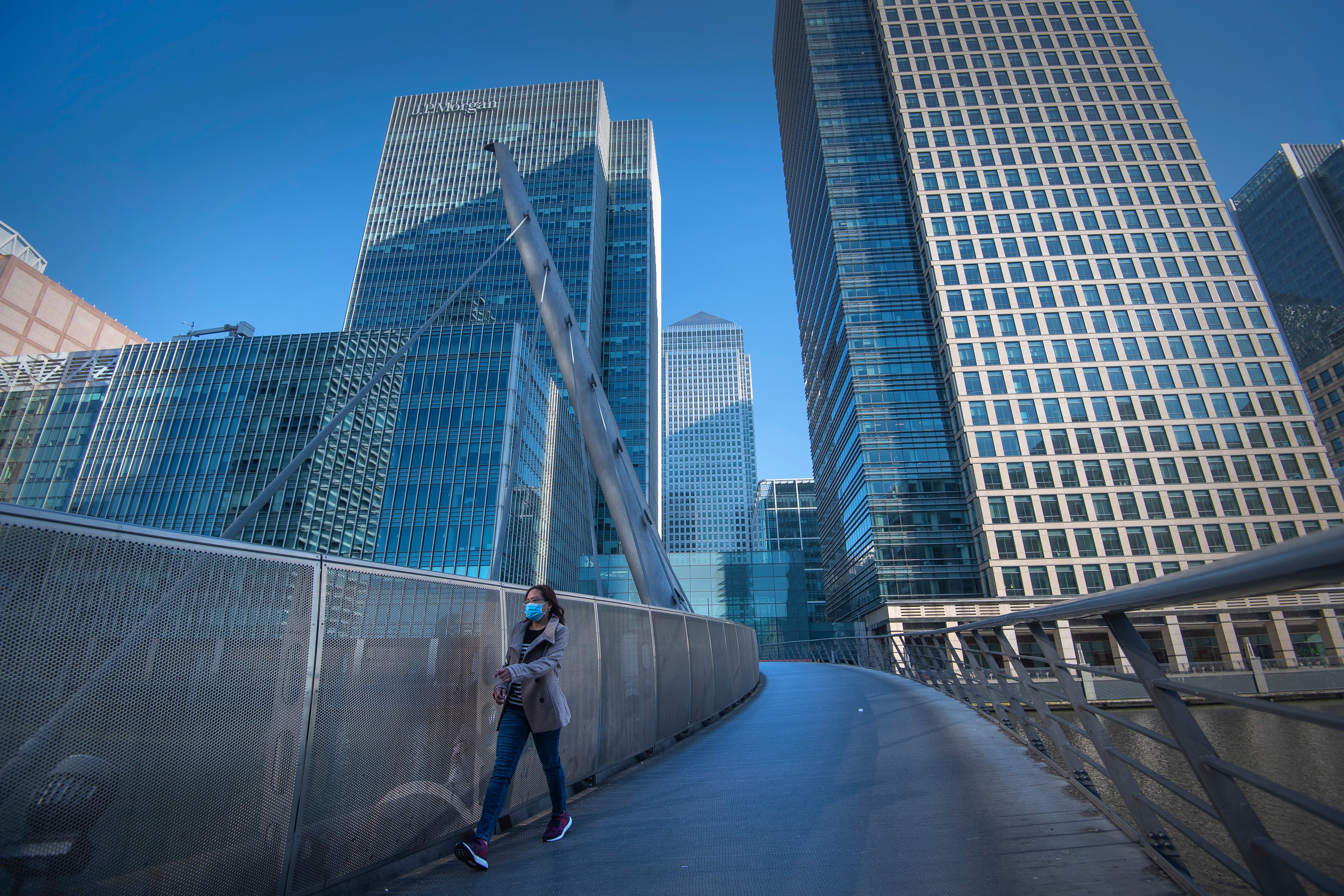OECD predicts UK economic growth amid vaccine success and lockdown easing
The Organisation for Economic Co-operation and Development warned that worldwide recovery from the pandemic is at a ‘critical stage’.

Your support helps us to tell the story
From reproductive rights to climate change to Big Tech, The Independent is on the ground when the story is developing. Whether it's investigating the financials of Elon Musk's pro-Trump PAC or producing our latest documentary, 'The A Word', which shines a light on the American women fighting for reproductive rights, we know how important it is to parse out the facts from the messaging.
At such a critical moment in US history, we need reporters on the ground. Your donation allows us to keep sending journalists to speak to both sides of the story.
The Independent is trusted by Americans across the entire political spectrum. And unlike many other quality news outlets, we choose not to lock Americans out of our reporting and analysis with paywalls. We believe quality journalism should be available to everyone, paid for by those who can afford it.
Your support makes all the difference.Britain’s economy will grow at a faster pace than expected this year and next following the crippling effects of the coronavirus crisis, according to a major international organisation.
But the Organisation for Economic Co-operation and Development (OECD) warned that worldwide recovery is at a “critical stage”, and that this could be uneven due to disparities in vaccine distribution globally.
The organisation upgraded its outlook for the UK economy, forecasting gross domestic product (GDP) growth of 7.2% this year and 5.5% in 2022, due to the success of the vaccination rollout and the easing of lockdown restrictions.
It said that growth was being driven by a “rebound of consumption, notably of services”, and that GDP is expected to return to pre-pandemic levels in early 2022.
“Keeping up the pace of vaccinations and responding to emerging virus mutations are key challenges going forward,” the forecast added.
However, the organisation warned that the UK could face the biggest decline in potential output growth on average among the G7 group of countries, while losses are estimated to be relatively small in Japan, Canada and the United States.
“Declines in potential output growth in major euro area members could be 0.3 percentage point per annum on average over 2019-22,” it said.
“The United Kingdom could suffer the biggest reduction amongst G7 countries (a decline of 0.5 percentage point per annum), in part reflecting the additional adverse supply-side effects from 2021 following Brexit.”
In terms of the global outlook, it has revised up its growth projections across the world’s major economies since the last full outlook in December of last year, putting global GDP growth at 5.8% this year.
Chief economist Laurence Boone said that the OECD’s latest projections could give “hope” to people in countries hard-hit by the pandemic, who may soon be able to return to work and begin living normally again.
He added: “But we are at a critical stage of the recovery.
“Vaccination production and distribution have to accelerate globally and be backed by effective public health strategies.
“Stronger international cooperation is needed to provide low-income countries with the resources – medical and financial – required to vaccinate their populations.
“Trade in healthcare products must be allowed to flow free of restrictions.”
Responding to the outlook, Chancellor Rishi Sunak said: “The strength of the UK’s growth forecast is testament to the ongoing success of our vaccine rollout and evidence that our Plan for Jobs is working.
“It is great to see some early signs that the UK is bouncing back from the pandemic, but with debt at nearly 100% of GDP, we must also ensure public finances remain on a sure footing.
“That’s why at the Budget in March I set out steps we will take to bring debt under control over the medium term; ensuring our future recovery is sustainable.”